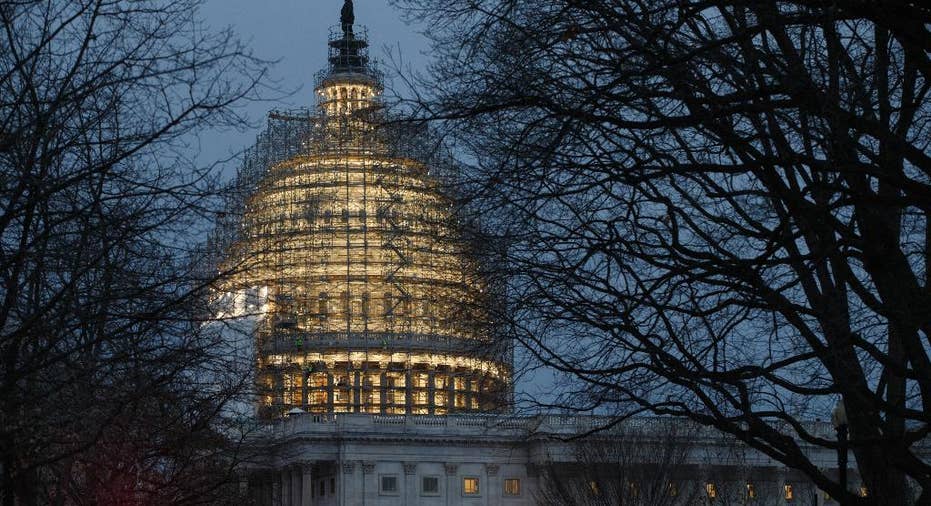US budget likely showed small surplus for December

WASHINGTON – The Treasury Department releases federal budget data for December. The report will be issued at 2 p.m. EST Tuesday.
SMALL SURPLUS: The projection by the Congressional Budget Office is that government will record a surplus for December of $3 billion. That would be down from a $53 billion surplus in December 2014.
If CBO's forecast for December is accurate, the deficit through the first three months of the current budget year, which began Oct. 1, will be $175 billion, slightly above the $173 billion deficit run up in the same period in the previous budget year.
CBO is forecasting that tax revenues will be higher than a year ago but they are also forecasting an increase in spending in such areas as Medicare, Medicaid and Social Security benefits.
In addition, last year's deficit was held down by a big payment that Fannie Mae and Freddie Mac made to repay taxpayers for rescuing the companies. The two mortgage giants made payments to Treasury this December as well, but the payments were $32 billion lower than they had been a year ago.
The CBO is forecasting that the deficit for the 2015 budget year, which runs through next September, will fall to $469 billion from $483.3 billion in 2014. That would be an improvement of 3 percent for the full year.
Congress in December approved a $1.1 trillion spending bill that will fund most of the government through Sept. 30, eliminating the threat of a government-wide shutdown through the current budget year. The one exception was the Department of Homeland Security, which was funded only to Feb. 27. Republicans intend to use the spending deadline for Homeland Security try to force President Barack Obama to roll back his immigration policy that removed the threat of deportation from millions of immigrants living in the United States illegally.
Congress, with both the Senate and House under Republican control, will get a proposed budget from Obama covering the 2016 fiscal year on Feb. 2, setting off months of debate over setting spending priorities for the next fiscal year.
After this year, the CBO is forecasting that deficits will resume rising for the rest of the decade as baby boomers retire and Social Security and Medicare costs rise. The CBO and other budget experts have warned that the current trajectory for the deficit is unsustainable and eventually could lead to a fiscal crisis.
The $483 billion deficit for 2014 was the smallest since George W. Bush's last full year as president. When measured against the size of the economy, the 2014 deficit equaled 2.8 percent of gross domestic product, below the average for the last four decades. By comparison, the deficit for 2013 was $680 billion, or 4.1 percent of GDP.
The deficit topped $1 trillion annually for four consecutive years, from 2009 to 2013, as the government struggled with a deep recession, which cut into tax revenues and forced higher spending for safety-net programs such as unemployment benefits and food stamps.
The improved deficit picture for 2014 reflected slower growth in spending due to lower-than-expected health care costs as well as a 2011 budget pact with Republicans that sharply curbed agencies' operating budgets. Obama reached an agreement with Republicans in Congress for a tax increase on higher income earners at the beginning of 2013.
Since that tax increase, the GOP-controlled House and Obama have steered clear of further large-scale efforts to reduce the deficit. But with Republicans now in control of both chambers of Congress, they are expected to try to rein in the deficit even further. Obama, however, has said that any large-scale budget deal needs to include higher taxes, something that Republicans oppose.



















